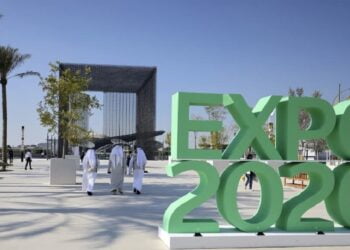A massive explosion rocked the town of Khiam in southern Lebanon on Sunday, marking what Lebanese media described as yet another Israeli violation of a fragile ceasefire agreement with Beirut. The Anadolu Agency reported that the explosion was linked to the demolition of homes and buildings by Israeli forces in the area, according to Lebanon’s state news agency NNA.
The sound of explosions has also been reported on the peripheries of Yaroun and Maroun, located in the Tyre district; this development further intensifies concerns regarding the precarious nature of the truce.
Mounting Ceasefire Violations
Since November 27, Lebanese media have documented over 60 alleged breaches of the ceasefire by Israeli forces. This ceasefire was brokered to terminate 14 months of conflict between the Israeli military and the Lebanese Hezbollah group. These reported violations are raising alarm (because) they suggest a potential collapse of an agreement intended to de-escalate a conflict that has already inflicted a devastating toll.
The ceasefire terms stipulate that Israel must withdraw its forces south of the Blue Line — the de facto border dividing the two nations — in a phased manner. Simultaneously, the Lebanese army is required to deploy its forces in the southern region within 60 days of the agreement’s implementation. Oversight of the ceasefire has been entrusted to the United States and France; however, details regarding enforcement mechanisms remain vague.
The Devastating Human Cost
Lebanon has suffered greatly as a result of the war. Lebanese health officials report that since the escalation started during the conflict in Gaza in October, more than 3,960 people have died and more than 16,500 have been wounded. More than a million people have been displaced by the violence, which has made Lebanon’s already severe political and economic problems worse.
The tenuous security of the truce has been threatened by reports of explosions and invasions, leaving residents of southern Lebanon in a state of perpetual anxiety and uncertainty. The most recent event in Khiam, along with explosions in neighboring towns, highlights how unstable the area is.
A Fragile Peace at Risk
Critics of the ceasefire deal have pointed to the lack of robust enforcement measures as a key weakness in ensuring its success. “The situation in southern Lebanon remains extremely precarious,” said a political analyst based in Beirut. “Again if there are no well defined means that will ensure that the violators of the agreement are punished, then this is another failed attempt at seeking for peace.”
There has been no official Lebanese government comment on Khiam explosion but local media were active in pointing to the difficulties of sustaining the cease fire. Critics believe that even more violations, could trigger counter-actions and restore the conflict that has been in a kind of a pause after the involvement of the parties.
The Bigger Picture
The situation in south Lebanon is as a result of increased political turmoil in the Middle East. The consequences of Gaza war have revived tensions between Israel and Hezbollah and the latter accused the former of fueling tensions. He further relied on some of the residents of southern Lebanon to report the situation as yet another episode of struggle and turmoil in the history of their region.
While the people of the world still watch keenly on how between warring factions is being complied with, reports of fresh blasts in Khiam and other areas bring to light the fact that one of the most sensitive regions of the globe is still a no-go-zone as far as lasting peace is concerned.








